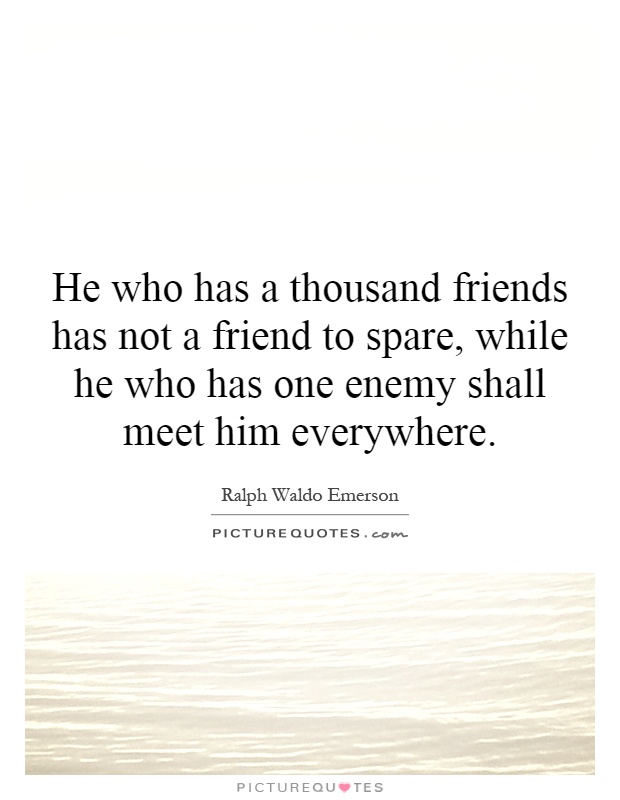He who has a thousand friends has not a friend to spare, while he who has one enemy shall meet him everywhere

He who has a thousand friends has not a friend to spare, while he who has one enemy shall meet him everywhere
Ralph Waldo Emerson, a renowned American essayist, lecturer, and poet, is often celebrated for his profound insights into human nature and the complexities of relationships. One of his most famous quotes, "He who has a thousand friends has not a friend to spare, while he who has one enemy shall meet him everywhere," encapsulates the idea that true friendship is rare and valuable, while enmity can have a lasting impact on one's life.Emerson believed that true friendship is not measured by the quantity of friends one has, but by the quality of the relationships. In a world where social media and superficial connections abound, it is easy to mistake a large number of acquaintances for genuine friendships. However, Emerson reminds us that having a thousand friends does not guarantee that one will have a true friend to rely on in times of need. True friendship, according to Emerson, is built on trust, loyalty, and mutual respect, qualities that are not easily found in a sea of superficial relationships.
On the other hand, Emerson's assertion that "he who has one enemy shall meet him everywhere" speaks to the lasting impact of enmity on one's life. An enemy, even if only one, can have a pervasive presence in one's life, causing stress, anxiety, and conflict wherever one goes. The presence of an enemy can color one's interactions with others, leading to feelings of paranoia and distrust. Emerson warns us of the dangers of harboring enmity, as it can have a corrosive effect on one's well-being and relationships.












 Friendship Quotes
Friendship Quotes Love Quotes
Love Quotes Life Quotes
Life Quotes Funny Quotes
Funny Quotes Motivational Quotes
Motivational Quotes Inspirational Quotes
Inspirational Quotes